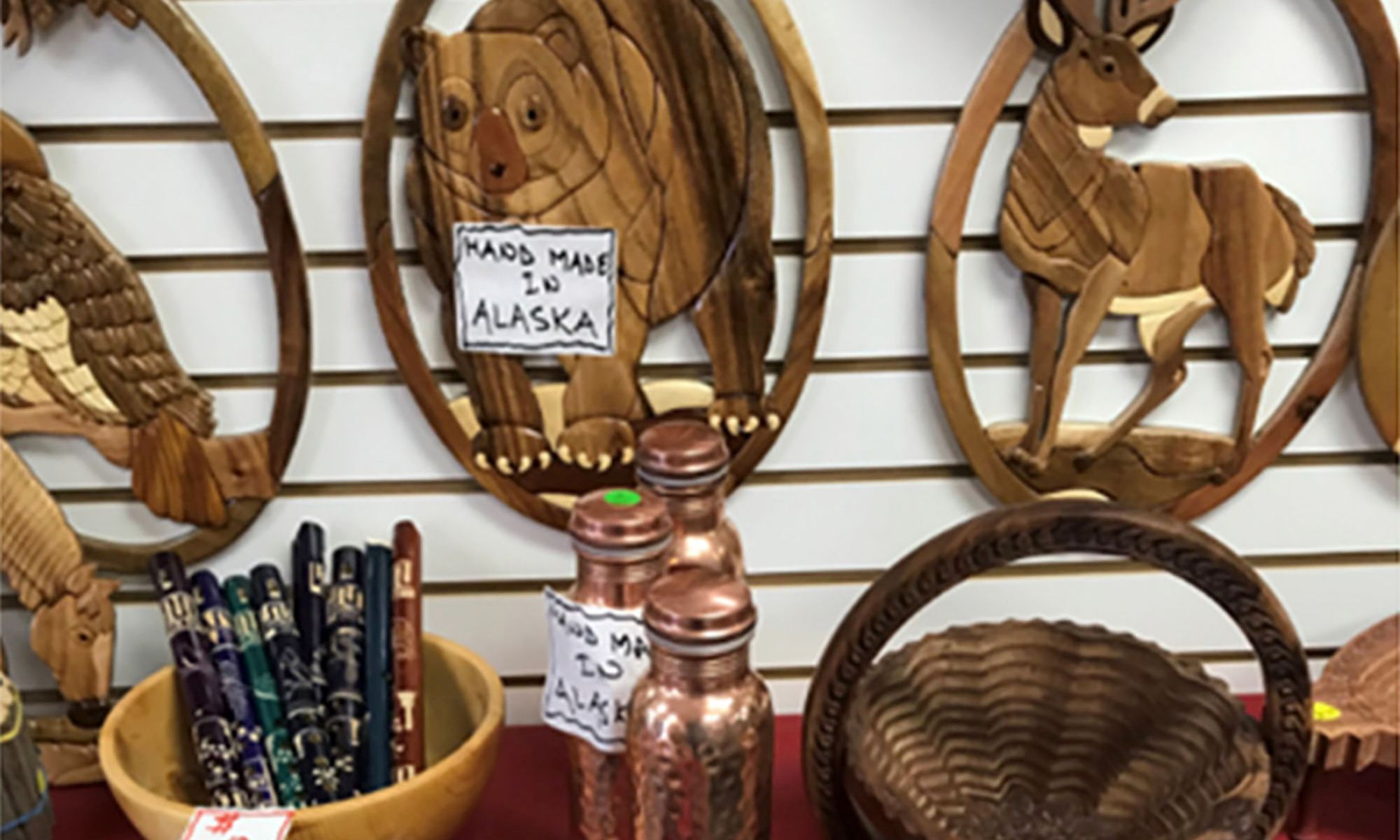Objects on offer at the Fairbanks, Alaska, store alternatively known as The Himalayan and Mt McKinley Clothing Company purportedly made in Alaska Court documents
The state of Alaska is suing a souvenir store near an entrance to the popular Denali National Park and Preserve for selling artefacts and other wares that are allegedly falsely labelled as authentic “Native art” and “made in Alaska”.
According to the lawsuit, filed last week by the Alaska Department of Law, a store in the city of Fairbanks that is alternatively known as The Himalayan and Mt McKinley Clothing Company has falsely displayed artefacts, tourist trinkets and garments that its owners claim are made in the state and, in some cases, by Native artists.
During a visit by an undercover investigator, the store’s owners allegedly “made the false claims that the store was a non-profit that was owned by the Yakutat Village Council, that they were volunteering at the store, that the alpaca products were made from Yakutat alpacas, that products in the store were made by Alaska Natives in Yakutat and that proceeds were returned to the Village Council”, per the complaint. According to the Alaska Beacon, the Yakutat Village Council does not exist and there are no native alpacas in the state.
According to the complaint, the clothes being sold at the store are mostly made in Nepal, while other objects are imported from countries including India and Thailand. In many instances, the store’s owners allegedly replaced labels listing the goods’ true countries of origin with ones indicating they were made in Alaska.
Selling foreign-made goods as being made in Alaska is a violation of state law. If the store’s owners are found to have falsely presented artefacts as having been made by an Alaska Native or member of a Native American community, they risk violating the Indian Arts and Crafts Act, a federal crime.
In response to the lawsuit, a judge in the state’s superior court, Patricia Haines, issued a preliminary injunction and restraining order against the store and its owners, which bars them from selling any more objects advertised as having been made in Alaska or by an Alaska Native without state approval. The state is also seeking a penalty against the store's owners of $25,000 for each violation of state law, with the total number to be determined at trial.
The lawsuit comes amid a broader crackdown on sales of objects falsely advertised as having been made by Indigenous artists, particularly in areas heavily trafficked by tourists as travel in the US surpasses pre-pandemic levels. In May, an artist who sold works that were fraudulently advertised as Native American art at a gallery in Seattle’s popular Pike Place Market was sentenced to 18 months of federal probation for violating the Indian Arts and Crafts Act.

